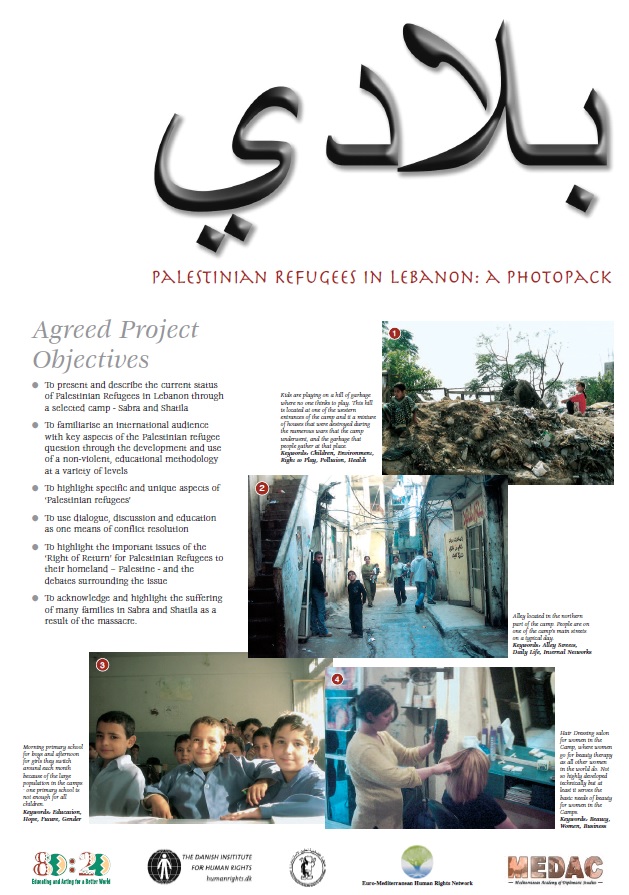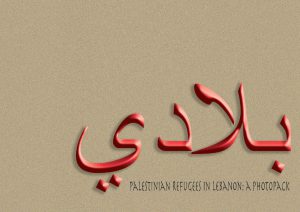Resource Title
Biladi: Palestinian Refugees in Lebanon: a photopack
Summary
This photopack uses photographs, facts, two case studies and a human rights education approach to understanding the situation of Palestinian refugees in Lebanon living in two refugee camps, Sabra and Shatila.
Resource Details
Description
Biladi shares a number of different dimensions of the situation of Palestinian refugees in Lebanon and, specifically, those living in Sabra and Shatila refugee camps:
- some of the history behind their story
- some details of the circumstances and situations in which they live today
- the specific forms of discrimination and exclusion they experience
- views and perspectives on the massacre and its legacy
- the issue of the right to return to Palestine.
The situation of the Palestinian people and the denial of most of their fundamental human rights are well highlighted internationally. Less so the situation of Palestinian refugees and the difficulties they face on a daily basis.
The story of the Palestinians in Lebanon is controversial and contested – it involves not just the Lebanese and the Palestinians but also the Israelis, the Syrians and, of course, the international community. It involves conflicting accounts and views of history, the Lebanese Civil War (1975 –1990), the rights of refugees, the right to return to their homes and, ultimately, the overall situation of the Palestinian and Jewish peoples.
Biladi is offered as one contribution to engaging with some of these issues and as part of a broader consideration of a human rights understanding of such issues.

Biladi proposes general activities for using the photos to explore the issues dealt with. The activities are useful in training settings for generating individual and group discussion and cooperation.
The aims of this resource are:
- To present and describe the current status of Palestinian Refugees in Lebanon through a selected camp – Sabra and Shatila
- To familiarise an international audience with key aspects of the Palestinian refugee question through the development and use
- of a non-violent, educational methodology at a variety of levels
- To highlight specific and unique aspects of ‘Palestinian refugees’
- To use dialogue, discussion and education as one means of conflict resolution
- To highlight the important issues of the ‘Right of Return’ for Palestinian Refugees to their homeland – Palestine – and the
- debates surrounding the issue
- To acknowledge and highlight the suffering of many families in Sabra and Shatila as a result of the massacre.
Available from:
- Download Biladi photopack (4.45MB)
- Download accompanying posters (3.07MB)
- Download 23 photographs accompanying the photopack (8.39MB)
Learn more about the Euro-Mediterranean Human Rights Network at https://www.euromedrights.org/eng

